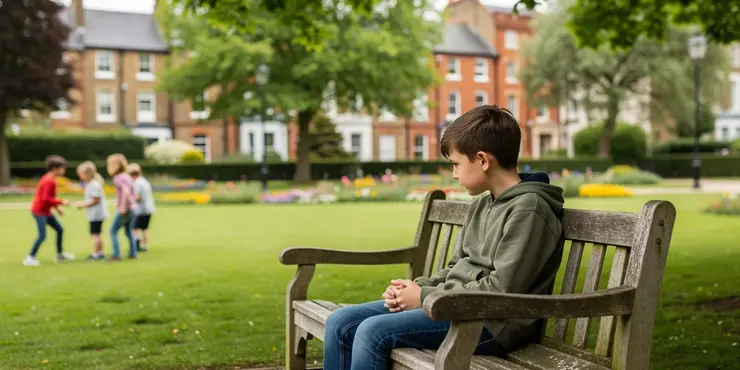
Find Help
More Items From Ergsy search
-
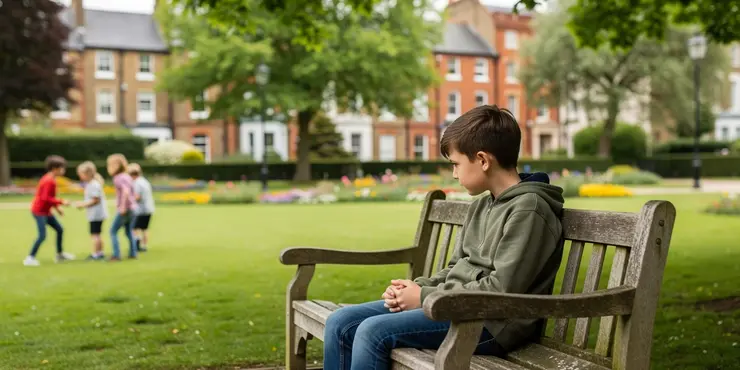
Navigating Mental Health Services for Children and Adolescents
Relevance: 100%
-
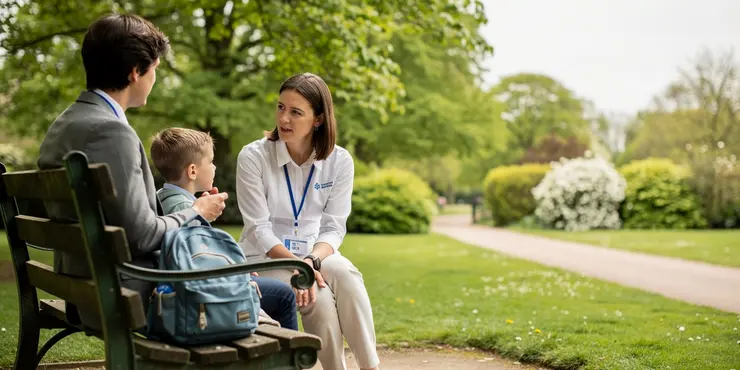
Understanding Mental Health in Children
Relevance: 64%
-
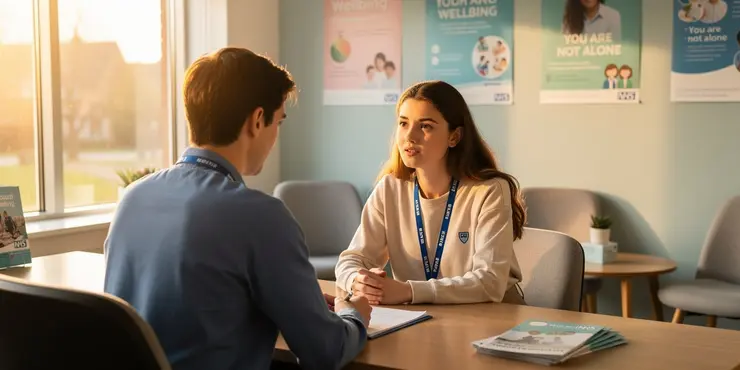
Current Challenges in Youth Mental Health Services
Relevance: 54%
-
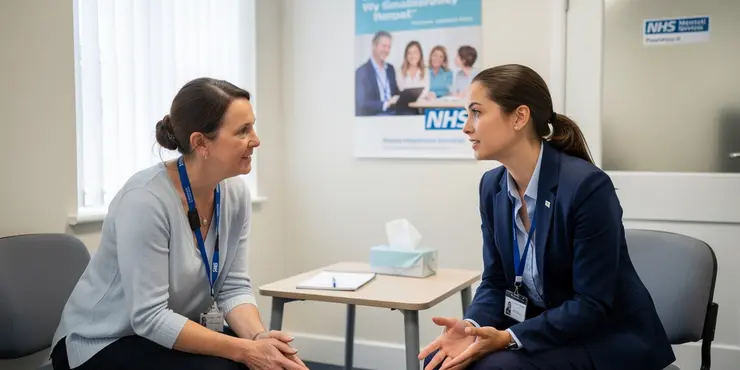
Mental Health Support Services in the UK
Relevance: 54%
-
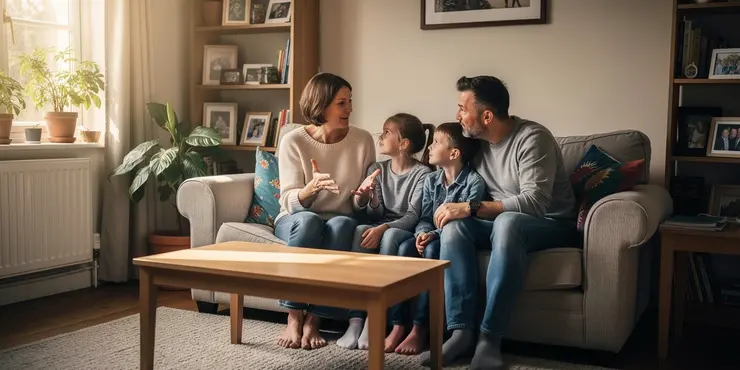
Mental Health Resources for Families
Relevance: 54%
-
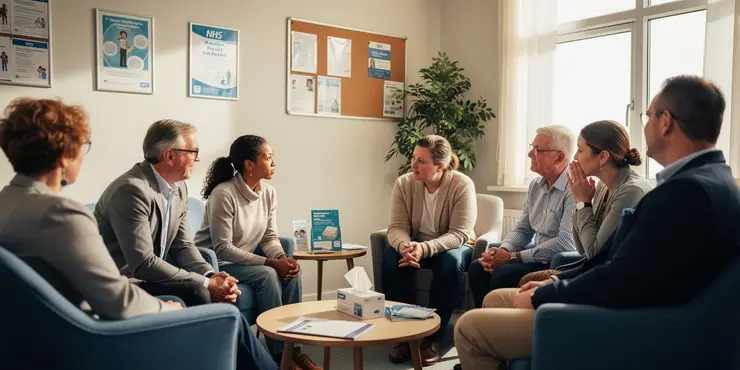
Support Services for Mental Health Amid Economic Uncertainty
Relevance: 52%
-
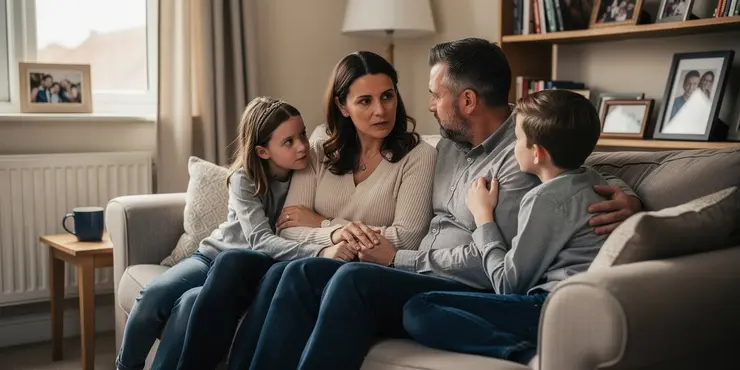
Mental Health Support Resources for Families
Relevance: 50%
-
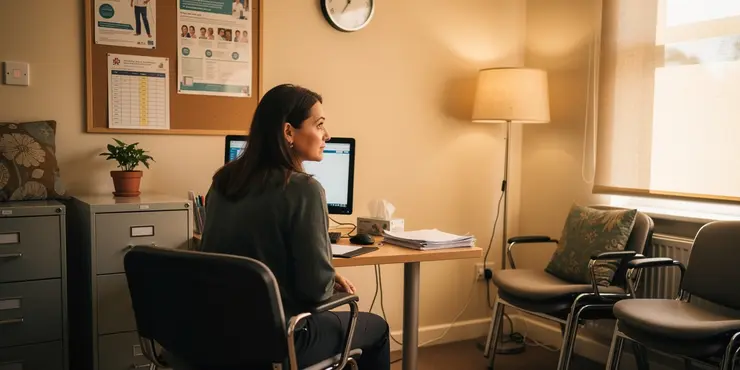
Mental Health Services Struggle to Cope Amid Record Demand
Relevance: 48%
-
Mental Health Support for Families: Resources and Guidance
Relevance: 46%
-
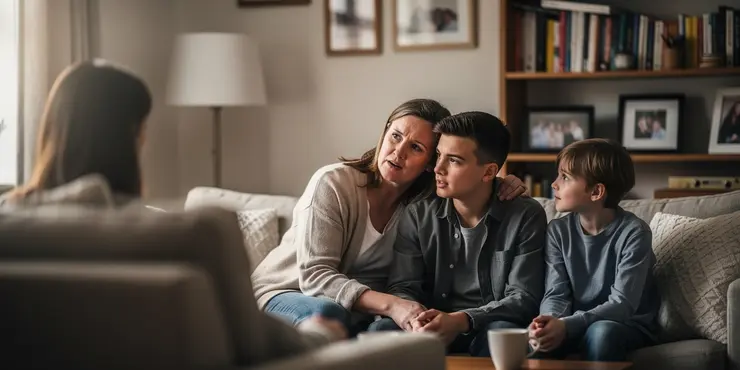
Advancements in Mental Health Resources for Families
Relevance: 46%
-
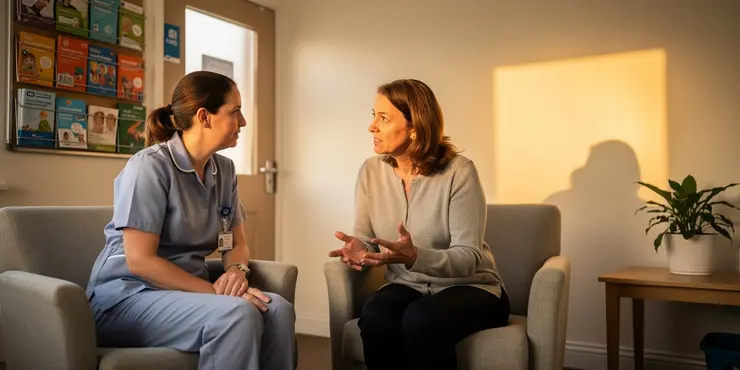
Mental Health Support Resources in the UK
Relevance: 45%
-
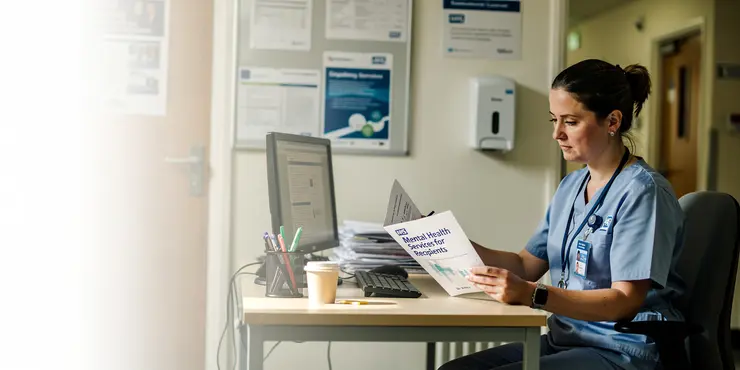
New Report Highlights Gaps in Mental Health Services for Welfare Recipients
Relevance: 45%
-
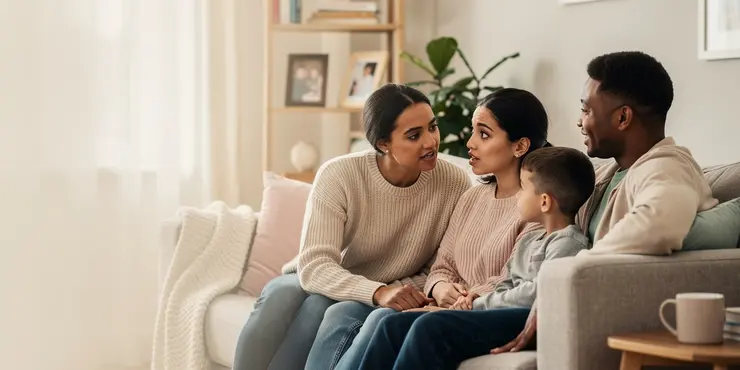
Mental Health Support for Families: Resources and Helplines
Relevance: 44%
-
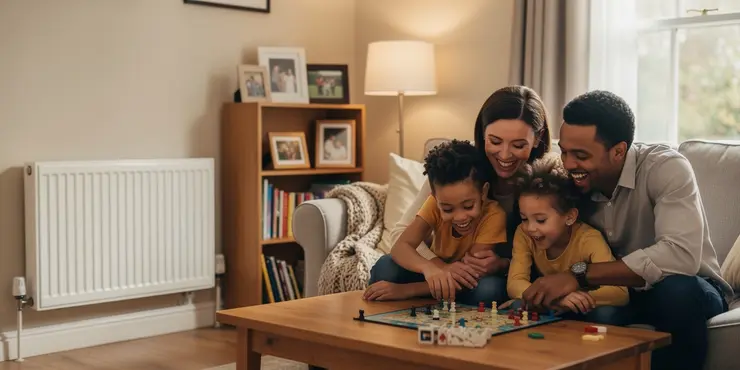
Mental Health Support for Families: Resources and Strategies
Relevance: 44%
-
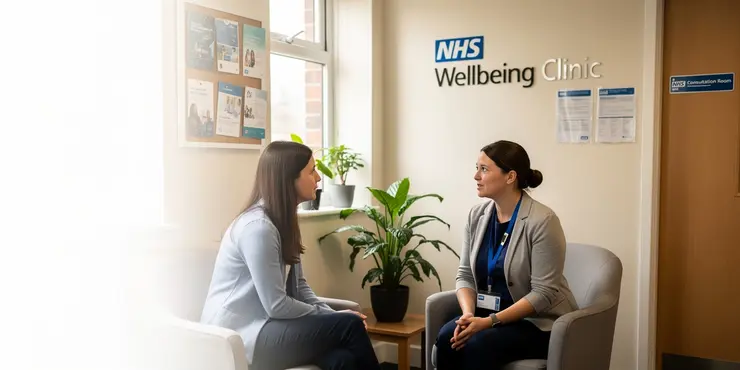
NHS Unveils Revolutionary Mental Health Support Initiative
Relevance: 44%
-
Has the social media ban been successful in improving children's mental health?
Relevance: 44%
-

Accessing Mental Health Support Resources in the UK
Relevance: 42%
-
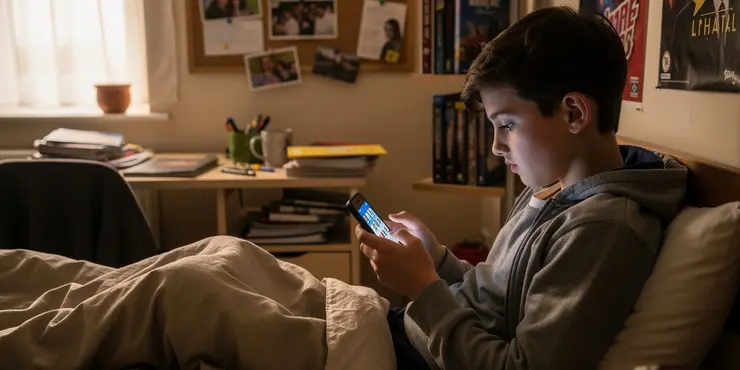
How does screen time before bed specifically affect adolescents?
Relevance: 41%
-
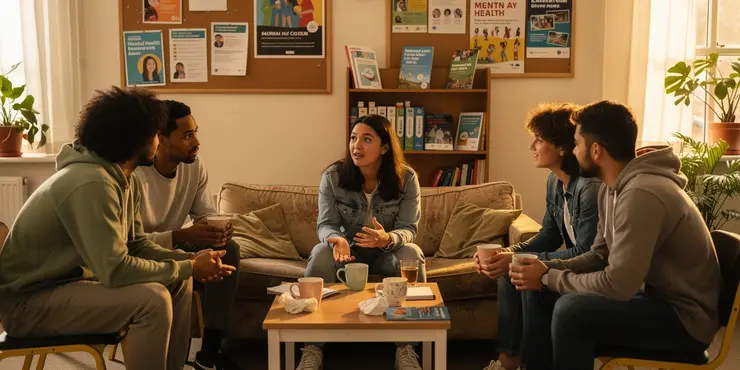
Tackling Youth Mental Health: Community Initiatives and Solutions
Relevance: 40%
-
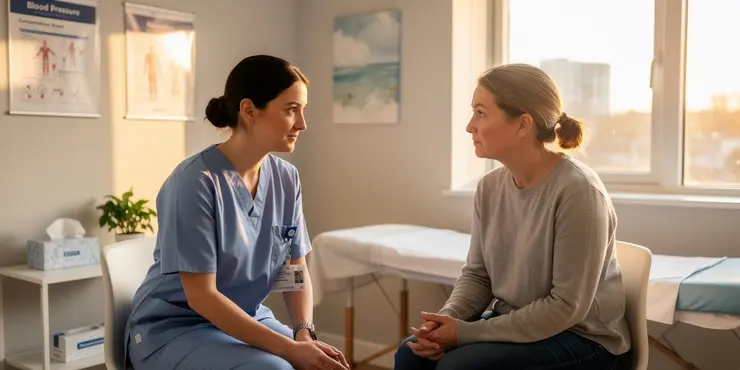
NHS-led Provider Collaboratives: improving mental health, learning disability and autism services
Relevance: 39%
-
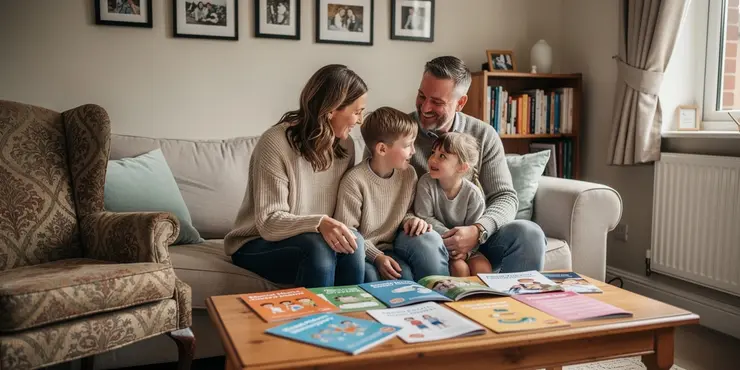
Mental Health Support for Families - Latest Resources and Guidance
Relevance: 38%
-
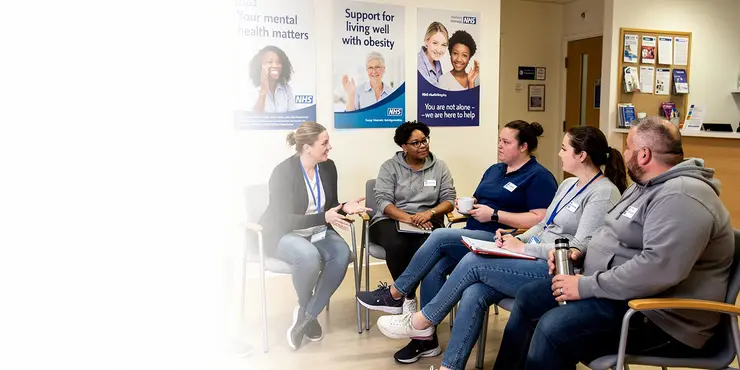
What is the impact of obesity on mental health?
Relevance: 38%
-
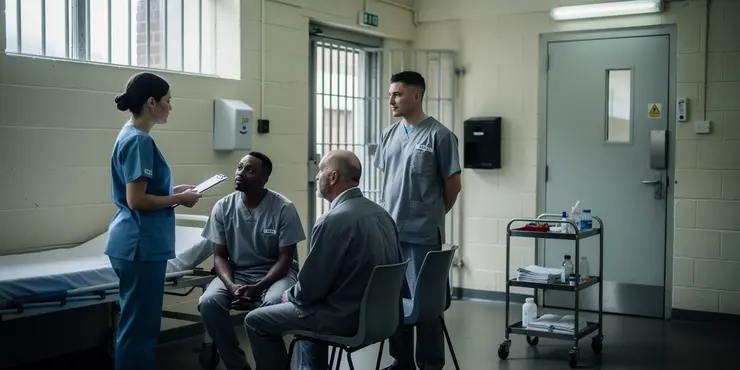
How are health services provided in prison?
Relevance: 38%
-
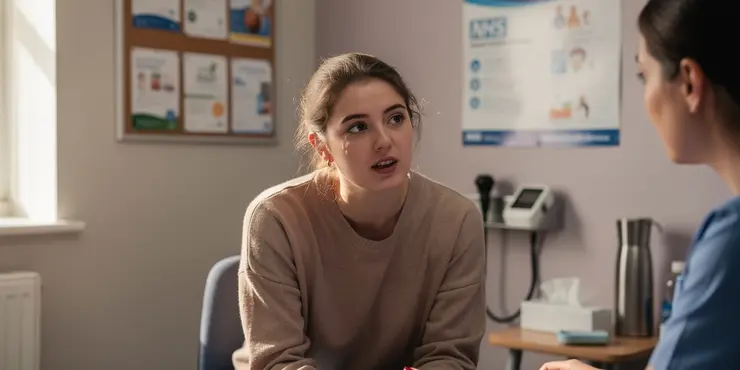
Mental Health: Laura's Story | NHS
Relevance: 38%
-
How does binge drinking affect mental health?
Relevance: 37%
-
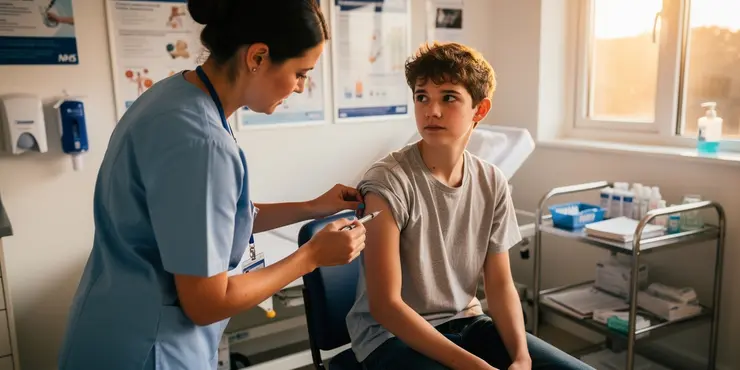
Does the CDC recommend meningitis vaccines for adolescents?
Relevance: 37%
-

New Mental Health Strategy Launched to Address Youth Anxiety Epidemic
Relevance: 37%
-
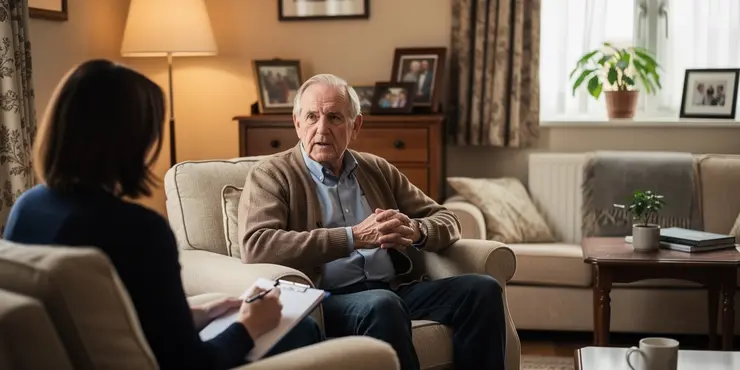
What mental health resources are available for seniors?
Relevance: 36%
-
How does sugar impact mental health?
Relevance: 35%
-
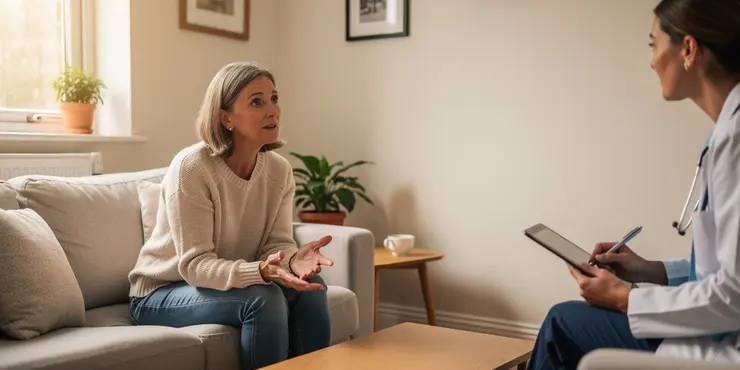
Can gut health affect mental health as one ages?
Relevance: 35%
-
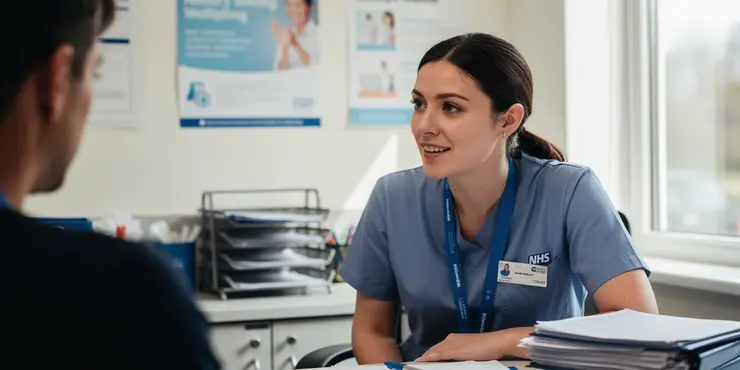
Can primary care support workers access mental health support?
Relevance: 34%
-
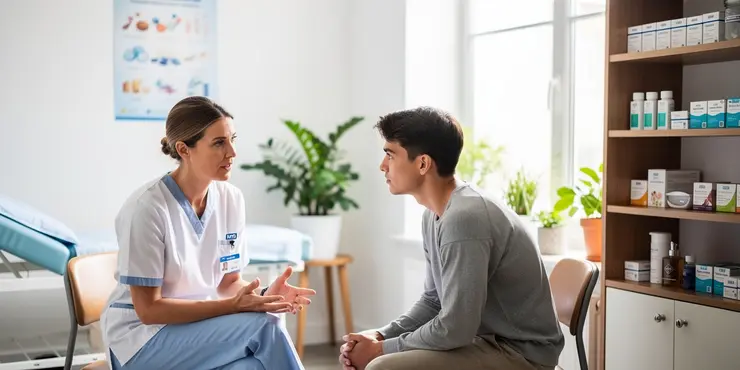
Can concussions lead to mental health issues?
Relevance: 34%
-
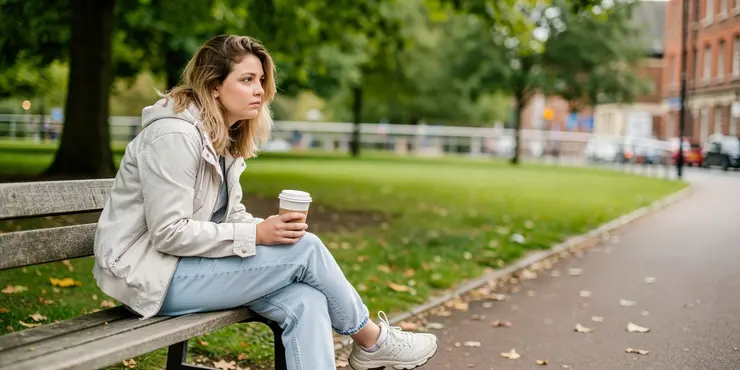
Short Films About Mental Health - Trauma PTSD
Relevance: 33%
-

Mental Health Impact of Cost of Living Crisis and Support Resources
Relevance: 33%
-
Can mixed exercises improve mental health?
Relevance: 33%
-
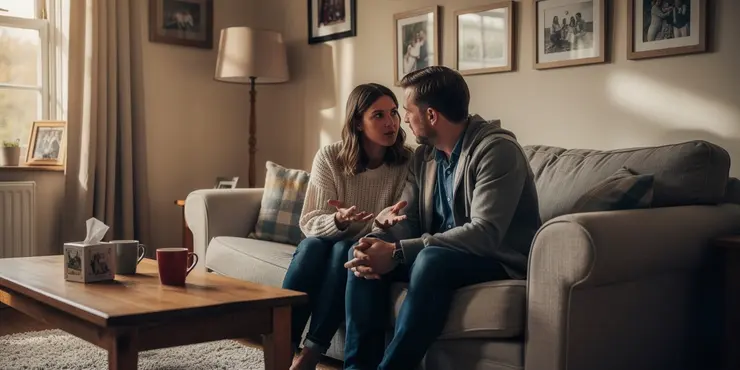
Can relationship problems be resolved to improve mental health?
Relevance: 33%
-
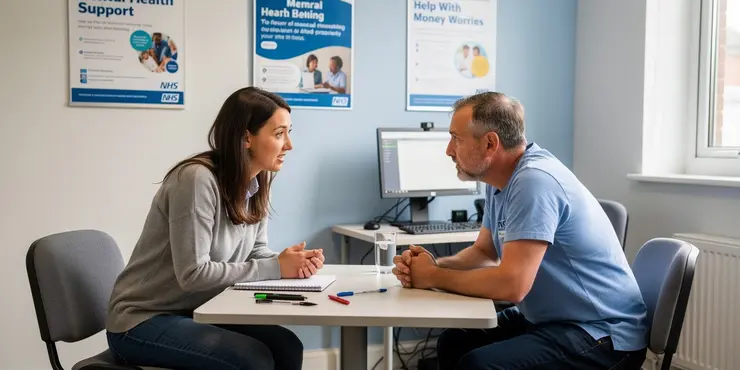
Essential Tips for Mental Health and Well-Being Amidst Rising Living Costs
Relevance: 33%
-
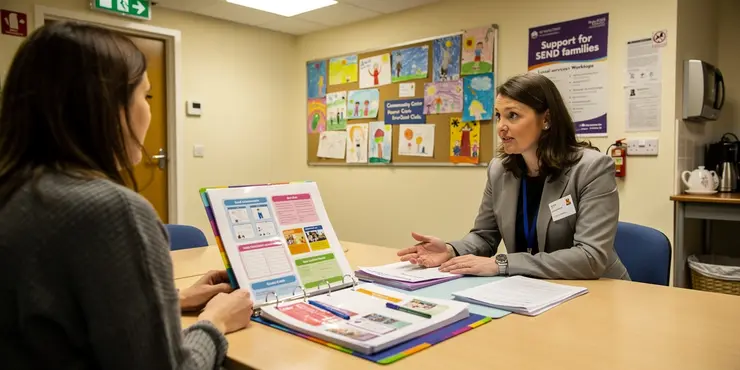
What support is available outside of school for SEND children?
Relevance: 33%
-
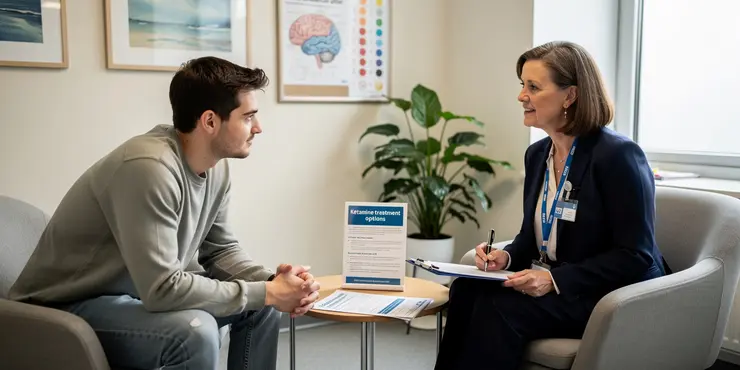
Can ketamine be prescribed for mental health conditions?
Relevance: 33%
-

How does the loneliness epidemic impact mental health?
Relevance: 32%
Navigating Mental Health Services for Children and Adolescents
Understanding the Importance of Early Intervention
Mental health is a critical aspect of overall well-being, especially for children and adolescents. Early intervention can make a significant difference in the lives of young people experiencing mental health challenges. Identifying and addressing issues early can prevent more severe problems from developing and supports better long-term outcomes. It’s essential for parents, caregivers, and educators to recognize the signs of mental health issues and seek appropriate help.
Types of Mental Health Services Available
The United Kingdom offers a range of mental health services for children and adolescents. These include community-based services, inpatient facilities, and online resources. Key services include Child and Adolescent Mental Health Services (CAMHS), which provide assessment and treatment for a variety of mental health issues. Additionally, schools often have access to mental health professionals who can offer support and referrals.
Accessing Child and Adolescent Mental Health Services (CAMHS)
CAMHS are specialist NHS services that provide outpatient care and support for children and young people with mental health difficulties. Referrals to CAMHS can be made by GPs, teachers, or other professionals involved in a child's care. Waiting times for CAMHS services can vary, so it's advisable to seek help sooner rather than later. For urgent cases, there are crisis teams and emergency services available.
Role of Schools and Educational Institutions
Schools play a crucial role in supporting the mental health of children and adolescents. They often have dedicated staff such as counsellors or pastoral care teams who can provide initial support. Schools may also work in partnership with external mental health services to ensure students receive the help they need. Educational institutions can offer programs that promote mental well-being, resilience, and provide safe spaces for students to discuss their concerns.
Utilizing Online Resources and Helplines
There are numerous online resources and helplines available for children, adolescents, and their families in the UK. Websites such as YoungMinds, Childline, and Kooth offer information, advice, and counselling services. These can be valuable tools for support, especially for those who may be hesitant to seek face-to-face help. Online services can provide immediate assistance and guide individuals towards more comprehensive care if needed.
Conclusion
Navigating mental health services for children and adolescents in the UK can be complex, but understanding the resources available and taking action early can significantly benefit young people struggling with mental health issues. Parents, caregivers, and educators should work collaboratively to ensure children receive the appropriate support and treatment. Remember, seeking help is a critical step towards better mental health and well-being for children and adolescents.
Navigating Mental Health Services for Children and Adolescents
Understanding the Importance of Early Intervention
Mental health is very important for children and teenagers. Getting help early can really help kids who are having a tough time. If we spot problems early and help, kids can have a better future. It is important for parents, carers, and teachers to notice when a child might need help and to get them the right support.
Types of Mental Health Services Available
In the UK, there are lots of mental health services for kids and teenagers. These include services you can visit in your community, places you can stay in if you need more help, and online help. One key service is called Child and Adolescent Mental Health Services (CAMHS). CAMHS helps with mental health problems. Also, many schools have mental health professionals who can help and give advice.
Accessing Child and Adolescent Mental Health Services (CAMHS)
CAMHS is a special NHS service to help kids and young people with mental health issues. You can get referred to CAMHS by your doctor, teacher, or someone else who helps take care of you. It is good to ask for help early, as waiting times can be long. If there is an emergency, crisis teams and other services are there to help quickly.
Role of Schools and Educational Institutions
Schools are very important in supporting kids’ mental health. Schools might have counsellors or special staff who can help. They can also work with other services to get kids the help they need. Schools may have programs to teach kids about mental health and provide safe spaces to talk about problems.
Utilizing Online Resources and Helplines
There are many websites and helplines in the UK for kids, teens, and their families. Websites like YoungMinds, Childline, and Kooth can give information, advice, and counselling. These are great for people who might be too shy to talk face-to-face. Online help can be quick and guide you to more support if you need it.
Conclusion
Finding the right mental health support for kids and teens in the UK can be tricky, but knowing what help is out there and acting early can really help young people. Parents, carers, and teachers should work together to make sure kids get the right help and care. Remember, asking for help is an important step to feeling better.
Frequently Asked Questions
What are the first steps to take if I think my child needs mental health services?
If you believe your child needs mental health support, start by speaking to your GP. They can provide an initial assessment and refer you to specialist services if necessary.
What is CAMHS?
CAMHS stands for Child and Adolescent Mental Health Services. It is a range of services provided by the NHS to help children and young people with emotional, behavioural, or mental health issues.
How do I get a referral to CAMHS?
You can get a referral to CAMHS through your GP, your child's school, or other health professionals such as social workers.
Are mental health services for children and adolescents free in the UK?
Yes, mental health services provided by the NHS, including CAMHS, are free of charge.
What types of conditions can CAMHS help with?
CAMHS can help with a wide range of mental health issues, including anxiety, depression, eating disorders, ADHD, autism spectrum disorders, and more.
What should I do if my child is in crisis?
If your child is in immediate danger or experiencing a mental health crisis, call emergency services or go to the nearest A&E. For urgent mental health support, you can also contact the NHS 24/7 crisis line.
Can my child's school provide mental health support?
Many schools have counsellors or mental health support teams that can provide initial support. They can also help with referrals to outside services if needed.
How long will it take to get an appointment with CAMHS?
Waiting times for CAMHS can vary. While some cases are seen urgently, non-urgent cases might experience longer waiting periods. Your GP can provide more specific information based on your local service.
Can I access private mental health services for my child?
Yes, there are private practitioners and clinics that offer mental health services for children. However, these services come with a cost, unlike the free services provided by the NHS.
What role do parents play in their child's mental health treatment?
Parents are often involved in the treatment process, especially for younger children. This can include attending appointments, supporting treatment plans at home, and working with professionals to create a conducive environment for recovery.
What is an EHCP and how can it help my child?
An EHCP, or Education, Health and Care Plan, is a legal document that outlines the support and services required for children with special educational needs and disabilities. It can include mental health support tailored to your child's needs.
Are there any support groups for parents of children with mental health issues?
Yes, there are many support groups and organizations that offer resources and a community for parents dealing with similar challenges. Examples include YoungMinds, MindEd, and local parent support networks.
What online resources are available for mental health support?
Several online resources provide information and support for child and adolescent mental health, including YoungMinds, Childline, the NSPCC, and the NHS website.
Can mental health conditions in children be cured?
While some mental health conditions can be managed effectively or improve over time with the right treatment and support, others may require ongoing management. Each child's situation is unique, and their care plan should be tailored to their individual needs.
What can I do to support my child's mental health at home?
Supporting your child's mental health at home includes creating a stable and supportive environment, encouraging open communication, promoting healthy lifestyle choices, and seeking professional help when needed. It's also important to educate yourself about their condition and be an advocate for their needs.
What should I do first if I think my child needs help with their feelings?
If you think your child needs help with their feelings or thoughts, talk to your doctor first. The doctor can check what's needed and send you to experts who can help more if it's needed.
What is CAMHS?
CAMHS helps kids and young people with their feelings. CAMHS stands for Child and Adolescent Mental Health Services. They give support if you feel sad, worried, or have other strong feelings.
If you need help from CAMHS, you can talk to an adult you trust like a parent or teacher. They can help you get in touch with CAMHS. You can also try drawing, deep breathing, or talking to someone about your feelings.
CAMHS means Child and Adolescent Mental Health Services. This is help from the NHS for kids and teenagers who have problems with their feelings, how they act, or their mental health.
How can I get help from CAMHS?
Do you want help from CAMHS? Here is how you can get it:
- Talk to your doctor: You can see your family doctor. Tell them what is wrong. They can help you get to CAMHS.
- Speak to your teacher: You can talk to a teacher at your school. They can help you and call someone for you.
- Contact your nurse: If there is a nurse at your school, you can talk to them. They will help you get to CAMHS.
It is important to share how you are feeling. Ask a trusted adult for help. They will guide you.
Some helpful tools you can use are pictures or a diary to show or write how you feel. This makes it easier to explain to others.
You can get help from CAMHS. Your doctor can help you. Your child's teacher can help too. Other people, like social workers, can also help you.
Do children and teenagers get free help for mental health in the UK?
In the UK, children and teenagers can get free help for mental health. This help comes from the National Health Service, also known as the NHS.
If you need support, you can talk to your doctor, a teacher, or a school nurse. They can help you get the right support.
Sometimes, there are special places where you can talk to someone about how you feel. They can listen and help you feel better.
Remember, it's okay to ask for help if you feel sad, worried, or scared. Talking to someone can make things better.
You can also try using pictures, simple notes, or apps that help with feelings. These tools can make it easier to understand and share your feelings.
Yes, mental health help from the NHS is free. This includes help from CAMHS, too.
What can CAMHS help with?
CAMHS is a place that helps young people with their feelings and mental health. Here are some things they can help with:
- Feeling very sad or worried a lot.
- Finding it hard to pay attention or sit still.
- Having bad dreams or feeling scared.
- Feeling angry often.
- Finding it hard to talk to people.
If you need extra help, you can:
- Talk to a trusted adult.
- Write down your feelings.
- Draw a picture of how you feel.
CAMHS can help with many mental health problems. This includes feeling very worried (anxiety), feeling very sad (depression), problems with eating (eating disorders), having lots of energy and trouble paying attention (ADHD), and autism.
What can I do if my child needs help fast?
If your child is in danger right now or having a mental health emergency, call 999 or go to the hospital right away. For fast help with mental health, you can also call the NHS crisis line anytime, day or night.
Can my child's school help with mental health?
Schools can often help with mental health. Here are some things they might do:
- Have a school counselor who talks to children.
- Teach classes about feelings and how to handle them.
- Offer special support groups for kids who need extra help.
It's a good idea to talk to your child's teacher or the school staff. They can tell you more about what they can do. If your child needs more help, they might suggest seeing someone outside of school, like a therapist.
Some tools that can help at school or home include:
- Mood journals for children to draw or write about their feelings.
- Calming activities, like deep breathing or listening to quiet music.
Remember, reaching out to someone is the first step to getting help.
Lots of schools have special helpers called counsellors. They can listen and help when you feel upset or worried. They can also help you find other people who can help if you need more support.
How long until I can see someone at CAMHS?
How long you wait for CAMHS can be different. Some people get help fast if it's urgent. If it's not urgent, you might wait longer. Your doctor can tell you more about how it works where you live.
Can I get private mental health help for my child?
If your child needs help with their feelings, you can look for private mental health services. Private means you pay for it. Here is how you can do it:
- Search online for child therapists or counselors near you.
- Ask your doctor for recommendations.
- Talk to friends or family who might know of good therapists.
- Check if your health insurance covers private therapy.
It's important to choose someone your child feels comfortable with. You can call and ask questions before you visit. Tell them about your child's needs.
There are tools to help your child, like drawing or talking about their feelings. Some apps or books might be helpful too.
Yes, there are doctors and clinics that help children with their feelings and thoughts. But you have to pay for these services. The NHS offers free help.
How do parents help when their child is getting help for their feelings?
Parents help a lot when kids are getting better. They might go to doctor appointments, help with care at home, and work with experts to make home a good place to get well.
What is an EHCP and how can it help my child?
An EHCP is a plan to help your child learn. It stands for Education, Health, and Care Plan.
This plan helps if your child needs extra support at school.
How does an EHCP help?
- The plan explains what your child needs to learn better.
- It tells teachers how to help your child.
- It also helps your child get support from doctors or therapists if needed.
What can you do?
- Talk to your child's teacher if you think your child needs an EHCP.
- You can also speak to a special educational needs advisor for help.
- Use pictures or simple drawings to help your child understand the plan.
An EHCP stands for Education, Health and Care Plan. This is an important paper that says what help a child with special needs can get. It tells what kind of support and services your child can have, including help with mental health.
Are there groups that help parents with kids who have mental health problems?
Sometimes kids can have problems with their feelings or thoughts. Parents can feel worried or alone. There are groups that help parents talk and share with each other. These groups can help parents learn and feel better.
Here’s what you can do:
- Look online for groups that help parents. You can find websites where you can talk to other parents.
- Ask your doctor or teacher if they know any local groups that help parents.
- You can call a helpline to talk to someone who can help.
Talking to other parents can make it easier. You are not alone!
Yes, there are many groups and organizations that can help parents. They give support and advice to parents who face similar problems. Some examples are YoungMinds, MindEd, and local parent support groups.
What can I find online to help with mental health?
Here are some things that can help you feel better:
- Websites: There are pages online where you can read about mental health.
- Apps: You can download apps on your phone. They can help you relax or feel happier.
- Videos: Watch videos to learn about how to take care of your mind.
- Online chats: You can talk to people online if you need support.
Ask for help if you need it. Talking to someone can make you feel better.
There are places online that can help with mental health for kids and teens. You can look at websites like YoungMinds, Childline, the NSPCC, and the NHS.
Can children get better from mental health problems?
Some children have mental health problems, like feeling very sad or worried. These problems can get better with help. Doctors, therapists, and family can support children to feel better.
Not all problems go away completely, but children can learn ways to manage them. Talking with someone they trust is important. There are also special tools like picture cards and calming exercises that can help.
Some kids can feel better with the right help from doctors and family. Others might need longer help to feel good. Every child is different, so their doctor will make a special plan just for them.
Here are some tools that might help:
- Talk to a therapist or counselor.
- Use apps that help with calming down, like breathing exercises.
- Keep a journal to write down feelings.
- Join a support group for talking to other kids who feel the same way.
How can I help my child's mental health at home?
You can do simple things to help your child feel good and safe. Here are some ideas:
- Talk and listen: Spend time talking with your child. Ask them how they feel and listen to them.
- Show love: Give hugs and say kind words to make them feel loved.
- Play and have fun: Do fun activities together, like playing games or drawing.
- Keep a routine: Try to have a regular schedule for meals, sleep, and playtime.
- Be understanding: If your child is upset, try to understand how they feel.
- Use helpful tools: Read books or use apps for kids about feelings and staying calm.
Helping your child feel good at home is important. Here are some things you can do:
- Make your home a safe and happy place.
- Talk and listen to your child.
- Help them eat healthy and stay active.
- If they need more help, it's okay to ask a doctor.
- Learn about their feelings and needs so you can help them better.
Useful Links
This website offers general information and is not a substitute for professional advice.
Always seek guidance from qualified professionals.
If you have any medical concerns or need urgent help, contact a healthcare professional or emergency services immediately.
Some of this content was generated with AI assistance. We’ve done our best to keep it accurate, helpful, and human-friendly.
- Ergsy carfully checks the information in the videos we provide here.
- Videos shown by Youtube after a video has completed, have NOT been reviewed by ERGSY.
- To view, click the arrow in centre of video.
- Most of the videos you find here will have subtitles and/or closed captions available.
- You may need to turn these on, and choose your preferred language.
- Go to the video you'd like to watch.
- If closed captions (CC) are available, settings will be visible on the bottom right of the video player.
- To turn on Captions, click settings .
- To turn off Captions, click settings again.
More Items From Ergsy search
-

Navigating Mental Health Services for Children and Adolescents
Relevance: 100%
-

Understanding Mental Health in Children
Relevance: 64%
-

Current Challenges in Youth Mental Health Services
Relevance: 54%
-

Mental Health Support Services in the UK
Relevance: 54%
-

Mental Health Resources for Families
Relevance: 54%
-

Support Services for Mental Health Amid Economic Uncertainty
Relevance: 52%
-

Mental Health Support Resources for Families
Relevance: 50%
-

Mental Health Services Struggle to Cope Amid Record Demand
Relevance: 48%
-
Mental Health Support for Families: Resources and Guidance
Relevance: 46%
-

Advancements in Mental Health Resources for Families
Relevance: 46%
-

Mental Health Support Resources in the UK
Relevance: 45%
-

New Report Highlights Gaps in Mental Health Services for Welfare Recipients
Relevance: 45%
-

Mental Health Support for Families: Resources and Helplines
Relevance: 44%
-

Mental Health Support for Families: Resources and Strategies
Relevance: 44%
-

NHS Unveils Revolutionary Mental Health Support Initiative
Relevance: 44%
-
Has the social media ban been successful in improving children's mental health?
Relevance: 44%
-

Accessing Mental Health Support Resources in the UK
Relevance: 42%
-

How does screen time before bed specifically affect adolescents?
Relevance: 41%
-

Tackling Youth Mental Health: Community Initiatives and Solutions
Relevance: 40%
-

NHS-led Provider Collaboratives: improving mental health, learning disability and autism services
Relevance: 39%
-

Mental Health Support for Families - Latest Resources and Guidance
Relevance: 38%
-

What is the impact of obesity on mental health?
Relevance: 38%
-

How are health services provided in prison?
Relevance: 38%
-

Mental Health: Laura's Story | NHS
Relevance: 38%
-
How does binge drinking affect mental health?
Relevance: 37%
-

Does the CDC recommend meningitis vaccines for adolescents?
Relevance: 37%
-

New Mental Health Strategy Launched to Address Youth Anxiety Epidemic
Relevance: 37%
-

What mental health resources are available for seniors?
Relevance: 36%
-
How does sugar impact mental health?
Relevance: 35%
-

Can gut health affect mental health as one ages?
Relevance: 35%
-

Can primary care support workers access mental health support?
Relevance: 34%
-

Can concussions lead to mental health issues?
Relevance: 34%
-

Short Films About Mental Health - Trauma PTSD
Relevance: 33%
-

Mental Health Impact of Cost of Living Crisis and Support Resources
Relevance: 33%
-
Can mixed exercises improve mental health?
Relevance: 33%
-

Can relationship problems be resolved to improve mental health?
Relevance: 33%
-

Essential Tips for Mental Health and Well-Being Amidst Rising Living Costs
Relevance: 33%
-

What support is available outside of school for SEND children?
Relevance: 33%
-

Can ketamine be prescribed for mental health conditions?
Relevance: 33%
-

How does the loneliness epidemic impact mental health?
Relevance: 32%


